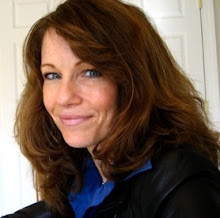Tension. We wade through it every day. It’s in the smallest moment of conflict and (of course) the rip-the-hair-out-the-head melt down. If someone asked me on any given day if I would like another helping of tension, I’d back away screaming “Noooo!” But give me a novel that lacks tension, big or small, and I’ll scream the same.
Without tension, the novel becomes a kind of sleeping pill, right? That’s why these statements from The Fire In Fiction, by the amazing Donald Maass fascinated me:

“What many do not grasp, though, including many published novelists, is that what keeps us turning hundreds of pages is not a central conflict, main problem, or primary goal.”
“Keeping readers constantly in your grip comes from the steady application of something else altogether. Micro-tension.”
“Micro-tension is the moment-by-moment tension that keeps the reader in a constant state of suspense over what will happen, not in the story, but in the next few seconds.”
Wow, these statements resonated with me. When I start reading a book and emotional conflict happens on the first page, I’m in. Maybe there is a rivalry between characters or a misunderstanding that can’t be ignored. Suddenly the dialogue between these characters has snap and crackle and pop. There is friction as a result of animosity, jealousy, passion, or other churning emotions. What is going on inside them is intriguing. This, it seems to me, could be an example of micro-tension--a moment of tension that keeps me reading and anxious for what is going to happen next, as in immediately next. It isn’t necessarily about the overall plot or even the stakes of the scene. It’s more focused on the conflicting emotions of the characters.
Of course a writer needs to pay attention to how to build the loud tension of the main character’s struggle for the ultimate goal, and all the opportunities for big tension in the story’s plot, characters, and setting. In between these building blocks of story, though, it makes sense that there can and should be the smaller conflicts called micro-tension. The mortar between the building blocks that holds them together.
What do you think?
For all your writers out there: Have you considered the concept of micro-tension? Do you incorporate it into your writing?
For you readers: When has micro-tension had you flipping pages while reading?
Last but miles away from least: A huge thank you to Ashley at http://ashley-nixon.blogspot.com/2011/09/blog-award-whoo.html?showComment=1317679295538#c7788470722401726733 and to Nutschell at http://www.thewritingnut.com/ramblings/blog-awards/#comment-4597 for gifting me lovely blog awards (and nice words about this blog). Big smile. : )





















